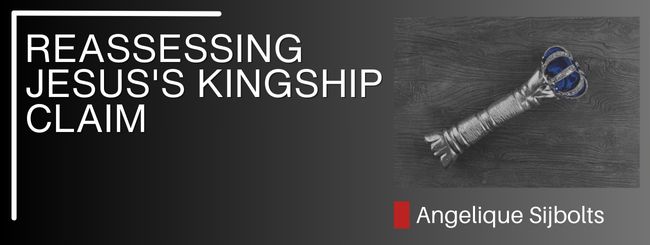בס”ד
In discussions of Jesus’s purported kingship over Israel inherited from Judah, historical and genealogical intricacies challenge conventional interpretations. This examination, Reassessing Jesus’s Kingship Claim, delves into claims that Jesus succeeded King David, revealing complexities that warrant closer scrutiny. By exploring the historical background and Jesus’s lineage, we aim to reassess assertions of his kingship within Hebrew Bible texts and historical narratives.
In Genesis 49:10, Jacob blesses all his sons before his death. The blessing he gives to Judah is described as follows:
Some Christians claim that the last political authority in Judah was King Herod and that, since no one has become king over Israel after him, Jesus must have inherited this kingship. They argue that Jesus, as the (alleged) King of Israel, took over this kingship from Judah for all eternity.
Let’s focus on Herod. He received rulership over Judah from the Romans, but he did not belong to the tribe of Judah. His father, Antipater the Idumaean, was a descendant of Edom, and his mother, Cypros, was a Nabatean Arab princess from Petra. Although Antipater married a Jewish woman, and his family had converted to Judaism in the second century BCE, the right to kingship was supposed to remain within the tribe of Judah[1]. Thus, Herod had no legitimate claim to this kingship, what is an explanation of his paranoid and violent behavior, driven by the fear of losing the throne.
In 2 Samuel 7:16, it is stated that the kingship of King David is eternal.
However, the continuity of this kingship doesn’t mean there were no interruptions until the Messiah, a direct paternal descendant of King David, would assume the throne. For instance, during the Babylonian captivity, there was no king of Israel. King Zedekiah was overthrown by the Babylonians, leading to the destruction of the First Temple. Since then, there has not been a king of Israel directly descended from King David[2], but the dynasty of his descendants continues.
Similarly, before King Herod, there was no king over Israel from the tribe of Judah. Herod essentially took over the Hasmonean kingship that had originated in the 2nd century BCE when Jewish rebels, the Maccabees, defeated the Seleucid King Antiochus IV Epiphanes. Simon Maccabaeus, from the tribe of Levi1, became the king of Judea in 142 BCE, and eventually, the Romans appointed Herod as king. If the missionaries’ logic were correct, we would be compelled to say that the Messiah must have come before Jesus, as the kingship of Judah had been temporarily abolished over a century earlier during the time of the Maccabees and the Chanukah miracle.2
It’s essential to note that, according to the genealogies of Matthew and Luke, even Jesus did not have a legitimate claim to the throne of King David. This is due to two practical reasons. Firstly, according to the Church, Jesus had no earthly father, meaning he couldn’t be from the tribe of Judah and, consequently, had no right to the throne of David. In Judaism, tribal identity is transmitted through the father, not the mother. Secondly, even if we consider the genealogy of Mary, it does not lead back to King David through Solomon, as 1 Chronicles 22:9-10 teaches, but rather through Nathan. However, the Hebrew Bible asserts that the line goes through Solomon.
In conclusion
The argument that Jesus inherited the kingship from Judah faces historical and genealogical challenges, emphasizing the importance of understanding the context and biblical narrative.
By Angelique Sijbolts
Sources
[1] In 1 Maccabees 2:1, it is mentioned that Mattathias, the father of Judah the Maccabee, was a “priest of the family of Joarib.” According to 1 Chronicles, Jehoiarib is listed as a descendant of Aaron (9:10; 24:7).
[2] The Jewish Response to Missionaries by Rabbi Bentzion Kravitz
[3] Let’s Get Biblical Volum 2 p. 244. See Isaiah 11:1, Jeremiah 23:5-6 and 33:14 which show that Messiah is a descendant of King David.
See also our blog-serie REDEMPTION
© Copyright, all rights reserved. If you enjoyed this article, we encourage you to distribute it further.
Our blogs may contain text/quotes/references/links that include copyright material of Mechon-Mamre.org, Aish.com, Sefaria.org, Chabad.org, and/or AskNoah.org, which we use in accordance with their policies.
